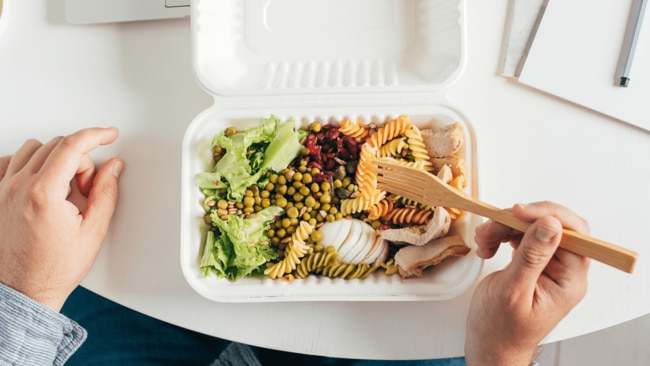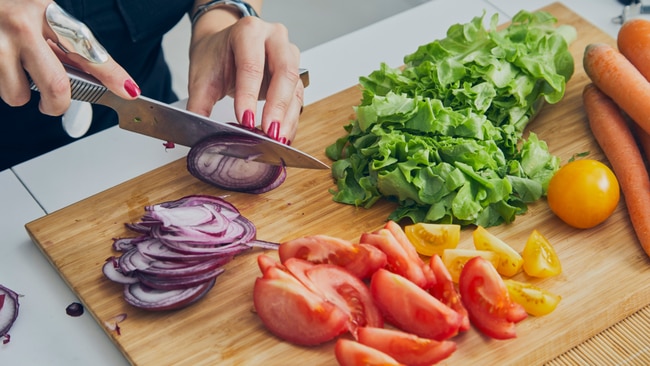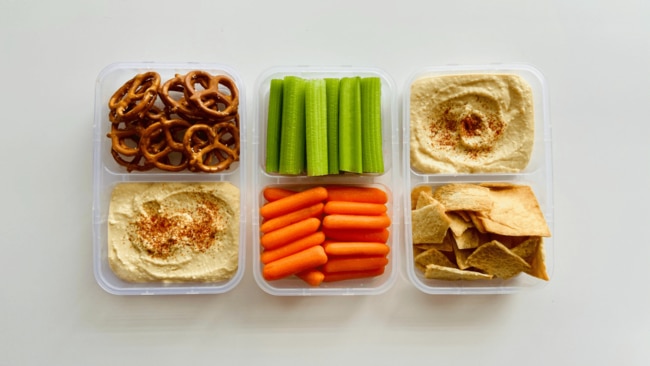5 food tricks a dietitian uses to kick-start weight loss
None involve the gym

Lifestyle
Don't miss out on the headlines from Lifestyle. Followed categories will be added to My News.
Instead of cutting out foods, dietitian Susie Burrell says your best bet is dosing up on more protein and vegetables - and pulling on your walking shoes.
When it comes to weight loss, most people are keen to achieve it as quickly as possible. While the reality is that significant fat loss takes time, and at best losses of ½ -1kg a week is a reasonable expectation there are some ways to help support the process.
Initially, reductions in carbohydrate intake will result in fluid loss, as glycogen stores are depleted which can equate to as much as a 2-3kg drop on the scales.
For many, this is enough to leave individuals feeling lighter and more motivated to keep going with their weight loss plan.
Like what you see? Sign up to our bodyandsoul.com.au newsletter for more stories like this.
There are a number of tricks of the trade dietitians use to support this quick but safe and sustainable weight loss, all of which only improve your overall nutritional intake while achieving a shift on the scales.
Superload on veggies and salad
One of the easiest ways to drop extra fluid that is on-board courtesy of a diet packed full of processed foods and extra salt is to significantly increase your intake of water-rich vegetables.
The high potassium content of vegetables, as well as the significant fibre load, will help to draw away extra fluid from the cells and get the digestive system moving.
Not only will you feel significantly better in yourself when you consume a large volume, or two to three cups of salad or vegetables at each meal, but you will find yourself a kilo or so lighter, even though you are eating more food.

Get fussy with meal timing
Fasting regimes, and the coffee culture which see many of us ditch breakfast in favour of a late brunch-style meal or even waiting until after midday to eat, means that many of us miss the natural increase in metabolic rate that comes from eating early in the day.
You may have noticed that you feel hungrier on days you eat breakfast early, and this is a sign that your body is working hard to burn the calories you have consumed and is increasing your metabolism.
For this reason, shifting your meal times forward, and aiming to enjoy your first meal of the day by 8am, or within an hour or so of waking is an easy strategy to get your metabolic pumping.
Then, making sure you have your final meal so you can allow at least 12 hours overnight without food will further help to ensure you are working through your fuel stores and are on your way to burning a higher proportion of fat.
Focus on protein
Protein as a nutrient plays a key role in energy regulation, as it helps to slow down the digestive process, keeping us fuller for longer after eating.
It also takes more calories to physically metabolise protein compared to fat and carbohydrate and as such protein-rich meals help to increase our burning capacity after consumption.
For this reason, making sure that each of your meals or snacks offers 20-30g of protein is an easy way to help control your appetite and maximise calorie burning.
Think 100g lean meat, chicken or fish, high protein yoghurt, cottage cheese and even a calorie-controlled protein bar or shake to help boost the protein content of each of your meals and snacks.

Don't skip afternoon tea
It is common for those keen to drop weight to also drop the snacks, to help lower overall calorie intake, but skipping snacks, especially a top-up between lunch and dinner can leave you vulnerable to extreme hunger late afternoon and overeating throughout the evening.
On the other hand, factoring in a protein-rich snack at 3-4pm will help to curb appetite so dinner can remain a small, light meal and support a calorie deficit and weight loss.
Good options include protein yoghurt with a little fruit, crackers and cottage cheese, a slice of protein toast with avocado or a protein bar and berries.
Stick to walking
When we find ourselves especially motivated to drop a few kilos, we can also ramp up the exercise. The downside of this is that high-intensity training coupled with a reduced calorie intake can leave us extremely hungry, and prone to food binges.
On the other hand, focusing on reducing calorie intake whilst increasing general movement with more steps spread throughout the day will still support an overall calorie deficit and fat loss, minus the feelings of extreme hunger and deprivation.
You will also then avoid the common thoughts of, ‘well I have exercised a lot today, so I can reward myself with an extra treat’, which can undermine fat loss, especially in the early stages.
More Coverage
Originally published as 5 food tricks a dietitian uses to kick-start weight loss





